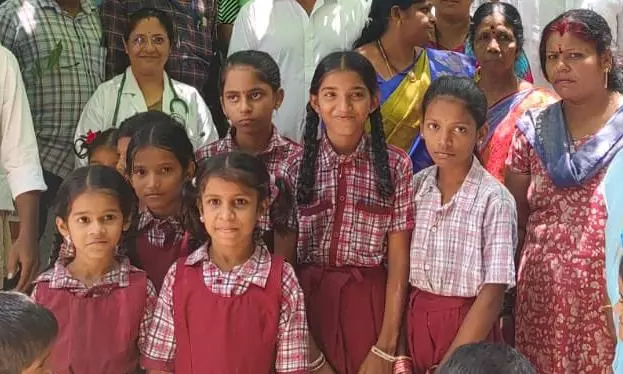
Vijayawada: G. Veerapandian, commissioner of the health family welfare department, on Sunday announced that all preparations have been made for the distribution of Albendazole tablets to 1.12 crore children aged between 1 and 19 on the occasion of the National Worm Eradication Day on February 10.
He mentioned that tablets have been dispatched to districts. He pointed out that the initiative aims to distribute these tablets to 1.12 crore children in the state.
Regarding distribution, Veerapandian explained, “Special booths are being set up at transportation hubs such as bus stations and railway stations. Measures have been taken to raise awareness on hygiene practices, such as avoiding open defecation and proper hand washing, after taking the tablets.
The health officials and independent monitors will oversee the smooth execution of the programme. In the event of any adverse effects, health centres will be equipped with emergency service departments like 108 and 104 on standby.”
Veerapandian urged school managements and the public to cooperate with the government in this initiative, which aims at the welfare of children and a healthier future for the state.
The commissioner stated that posters and pamphlets related to awareness campaigns had been distributed. He noted that 34% of children and students in the state are affected by worm infestations. He further noted that to combat this disease, 400 mg Albendazole tablets will be provided twice through anganwadi centres and government and private educational institutions.
Veerapandian stated that plans have been made to distribute these tablets to both enrolled children at anganwadis and those not attending school on Monday. He explained that for those who do not receive the tablets on Monday, a second round of distribution will be held on February 17, coinciding with a special ‘Mop Up Day’.
He specified that anganwadi workers and teachers will be responsible for handing out the tablets, adhering to government guidelines.
Arrangements are being made by health officials, ASHA workers, and ANMs to ensure availability of transportation, necessary infrastructure, tablets, IEC material, and safe drinking water facilities. District health officials have been instructed to oversee these operations.






